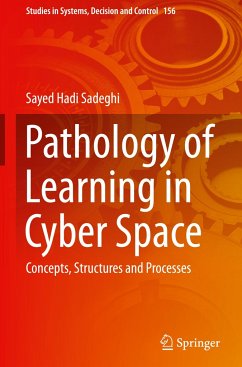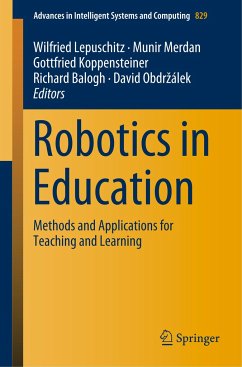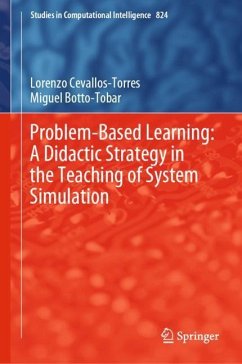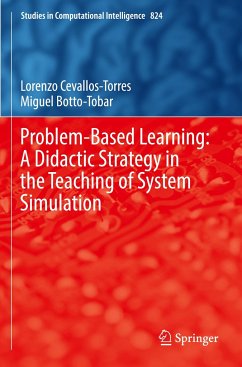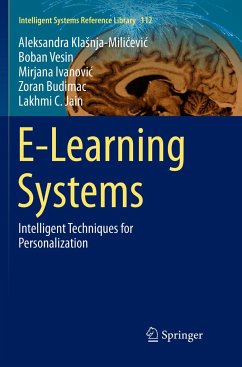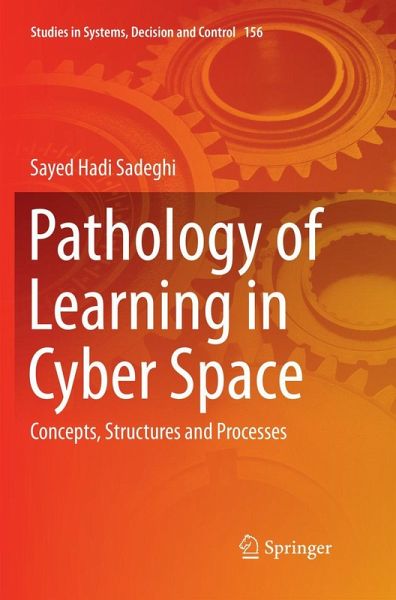
Pathology of Learning in Cyber Space
Concepts, Structures and Processes
Versandkostenfrei!
Versandfertig in 6-10 Tagen
90,99 €
inkl. MwSt.
Weitere Ausgaben:

PAYBACK Punkte
45 °P sammeln!
This book is divided into seven chapters, beginning with discussions of the main concepts of cyberspace, the relationship between cyberspace and real space, learning and education. It describes the relationship between cyberspace and real space, and presents capacities, judiciary, and concepts related to cyberspace. Cyber curricular education forms are then described in terms of teaching and learning resources in cyberspace. The discussion presented in this book consists of two main sections: The first section, outlines the objectives of training in cyberspace at different levels, while the se...
This book is divided into seven chapters, beginning with discussions of the main concepts of cyberspace, the relationship between cyberspace and real space, learning and education. It describes the relationship between cyberspace and real space, and presents capacities, judiciary, and concepts related to cyberspace. Cyber curricular education forms are then described in terms of teaching and learning resources in cyberspace. The discussion presented in this book consists of two main sections: The first section, outlines the objectives of training in cyberspace at different levels, while the second section describes the injuries caused by learning and training in cyberspace at different levels, and then highlights how cyber training is handled and receives feedback. Lastly, the authors provide a summary of the topics presented. Most other discussions are general and present the overall benefits of e-learning and e-teaching that is formally carried out in universities and schools through cyberspace. But, unfortunately, none of them fully explores the learning, education and cyber-training resources which should be used by individuals, groups, organizations, governments, and others in pursuing to achieve their goals. In addition to this, they do not pay much attention to the challenges and injuries caused by learning and teaching in cyberspace. This has led the authors to investigate these and other issues related to learning and training in cyberspace more widely and comprehensively, and also consider them beyond official formal learning and education. Most importantly they address issues such as the injuries and challenges that, in different ways and at different levels result from learning and education in this space. As such this book goes beyond simple and repetitive issues that have been raised concerning cyberspace, and underlines the challenges it poses. Although intended for scholars and students from the fieldsof science education, information technology, sociology and educational technology as well as interested parties and related authorities, this book is also helpful for people wishing to better understand new topics, such as cyberspace, learning and training in cyberspace, and related issues. It is of interest to a wide range of enthusiasts, with different educational, specialist and executive backgrounds, including academics, policymakers, managers and planners from educational and cultural institutions



